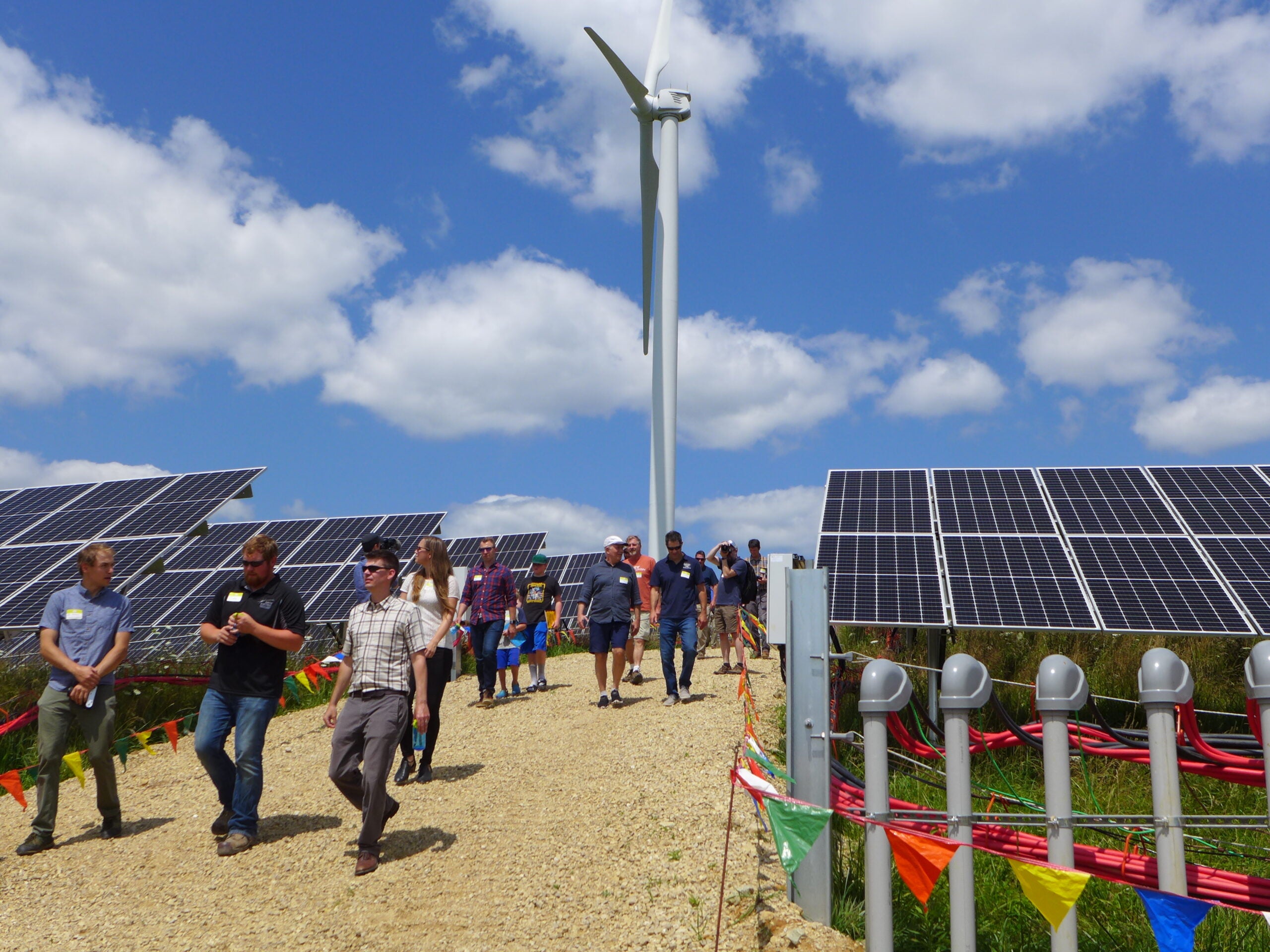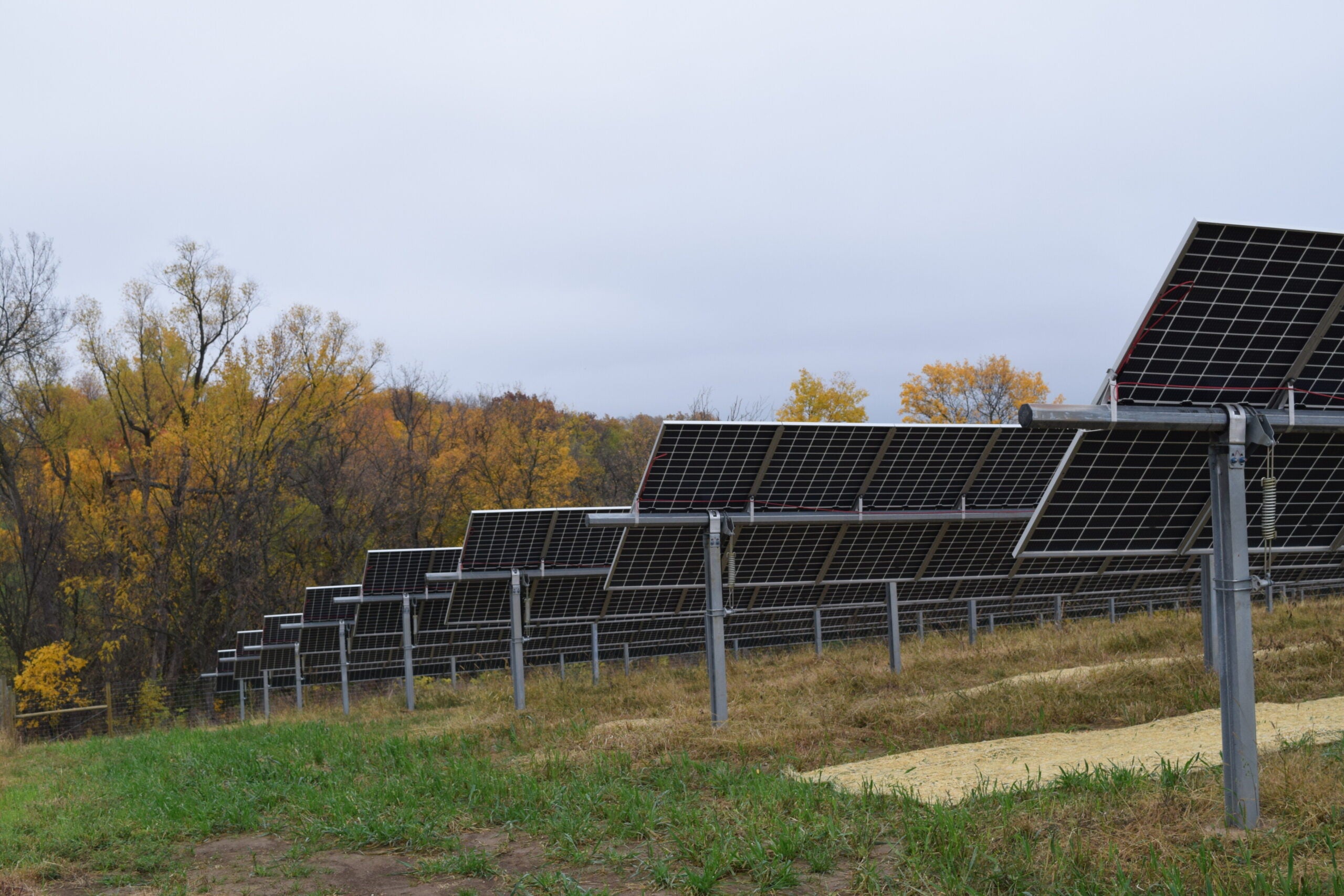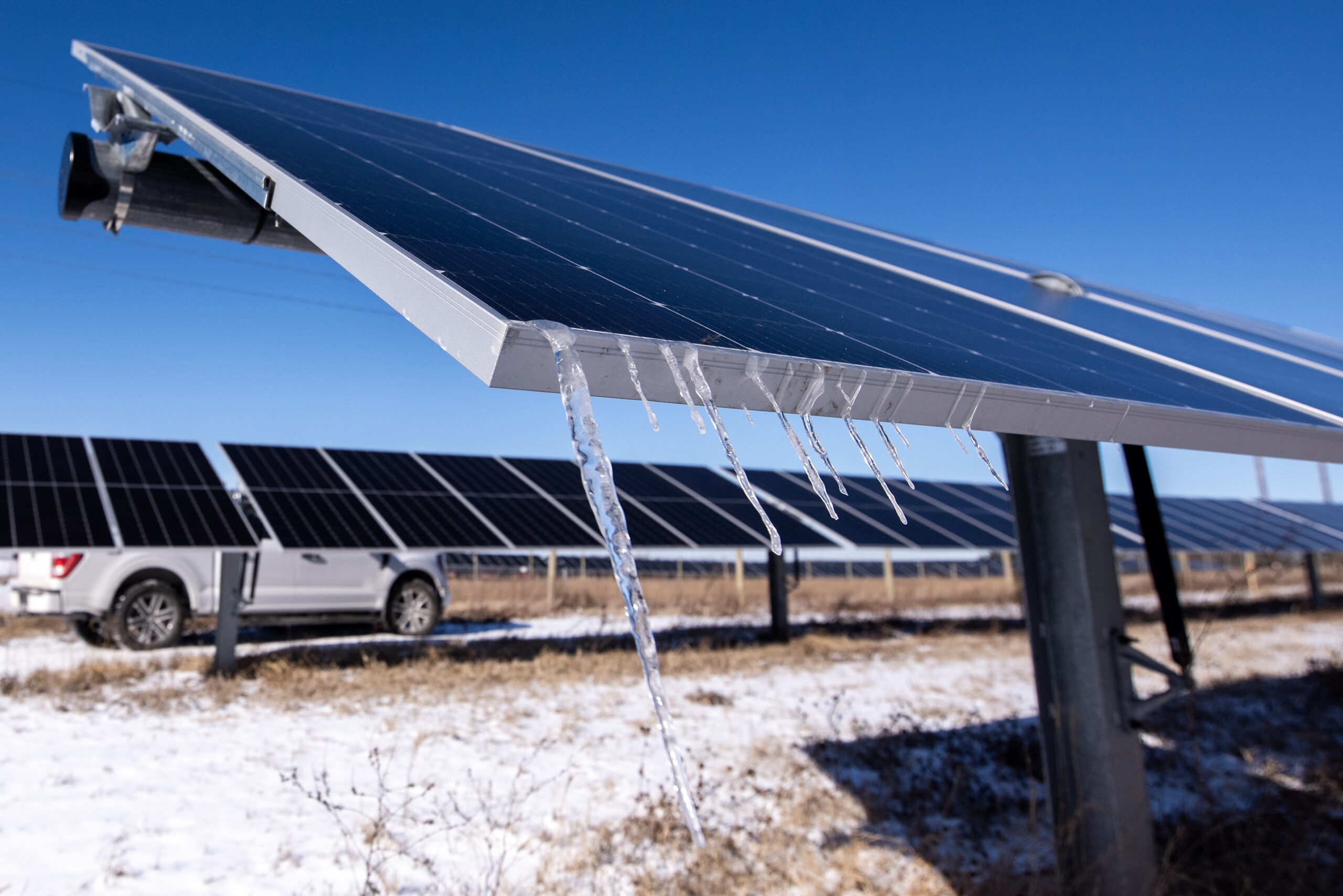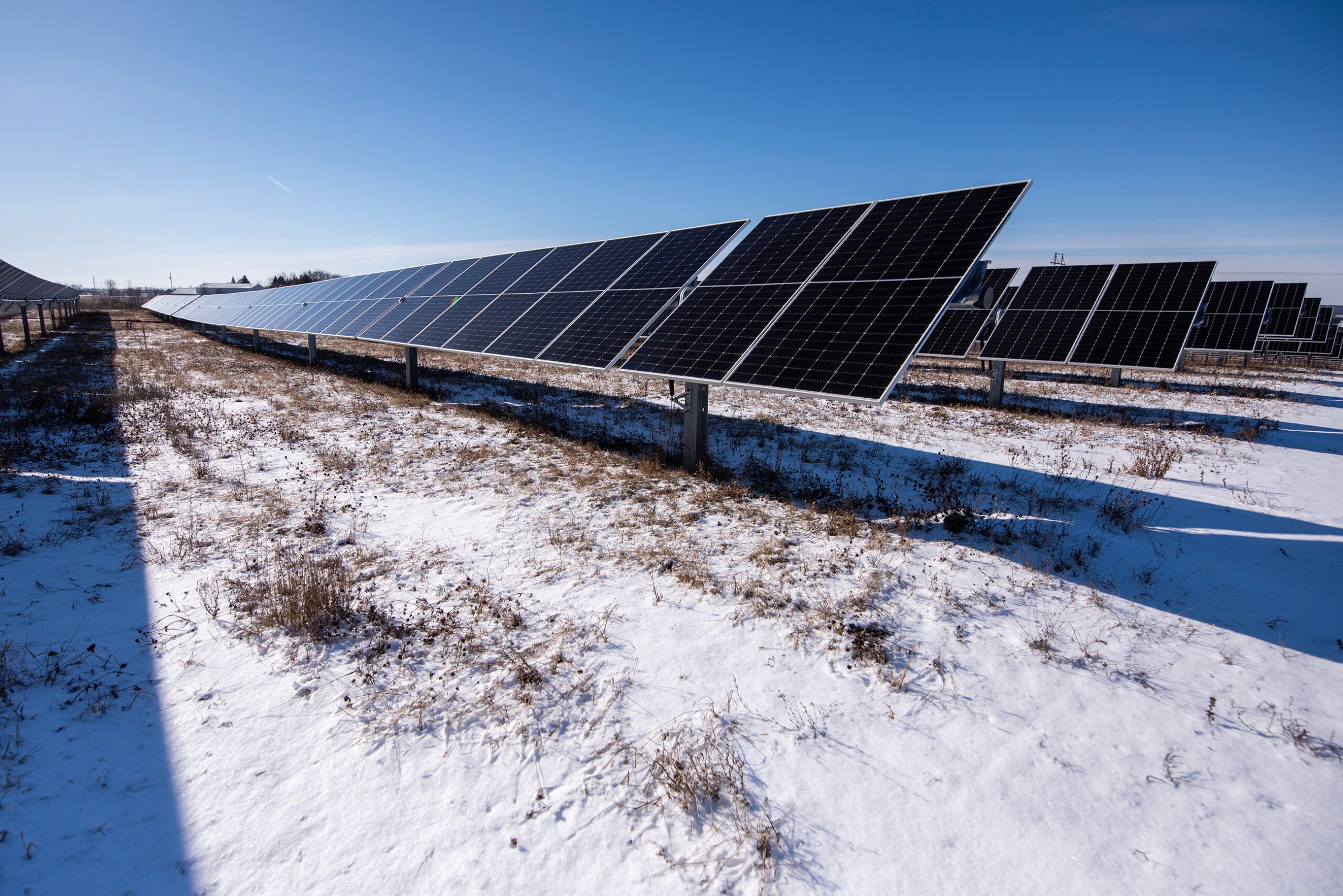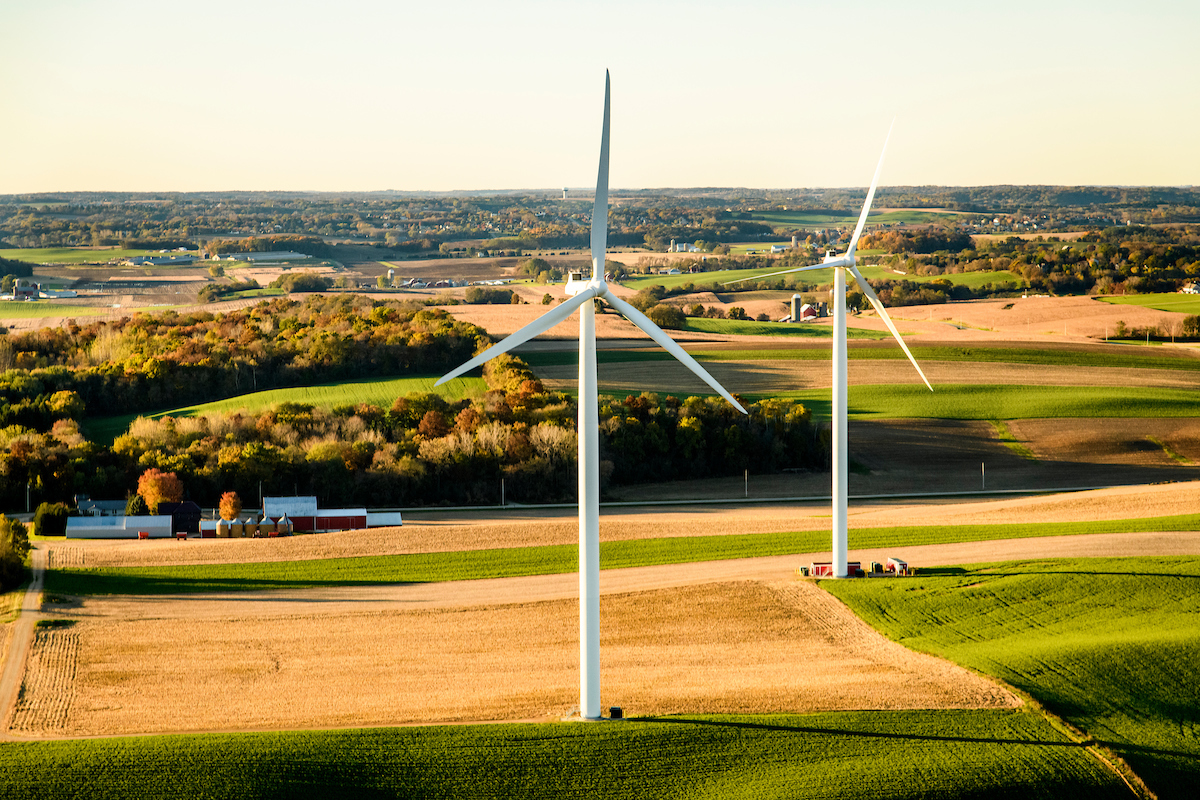A Wisconsin-based organic brand says they’re now the largest food company in the world to be 100 percent powered by renewable energy.
Organic Valley announced the completion of three solar sites in August that will produce 12.67 megawatts of energy for southwestern Wisconsin.
The projects are part of the 32 megawatt Butter Solar Portfolio, which includes 10 solar sites owned and operated by Canadian company BluEarth Renewables.
News with a little more humanity
WPR’s “Wisconsin Today” newsletter keeps you connected to the state you love without feeling overwhelmed. No paywall. No agenda. No corporate filter.
Upper Midwest Municipal Energy Group will buy the power, potentially reducing energy costs for 10 communities in Wisconsin, Minnesota and Iowa. Organic Valley has committed to buying renewable energy credits (RECs) from the projects for the next 25 years, along with California-based organic soap company Dr. Bronner’s and the City of Madison.
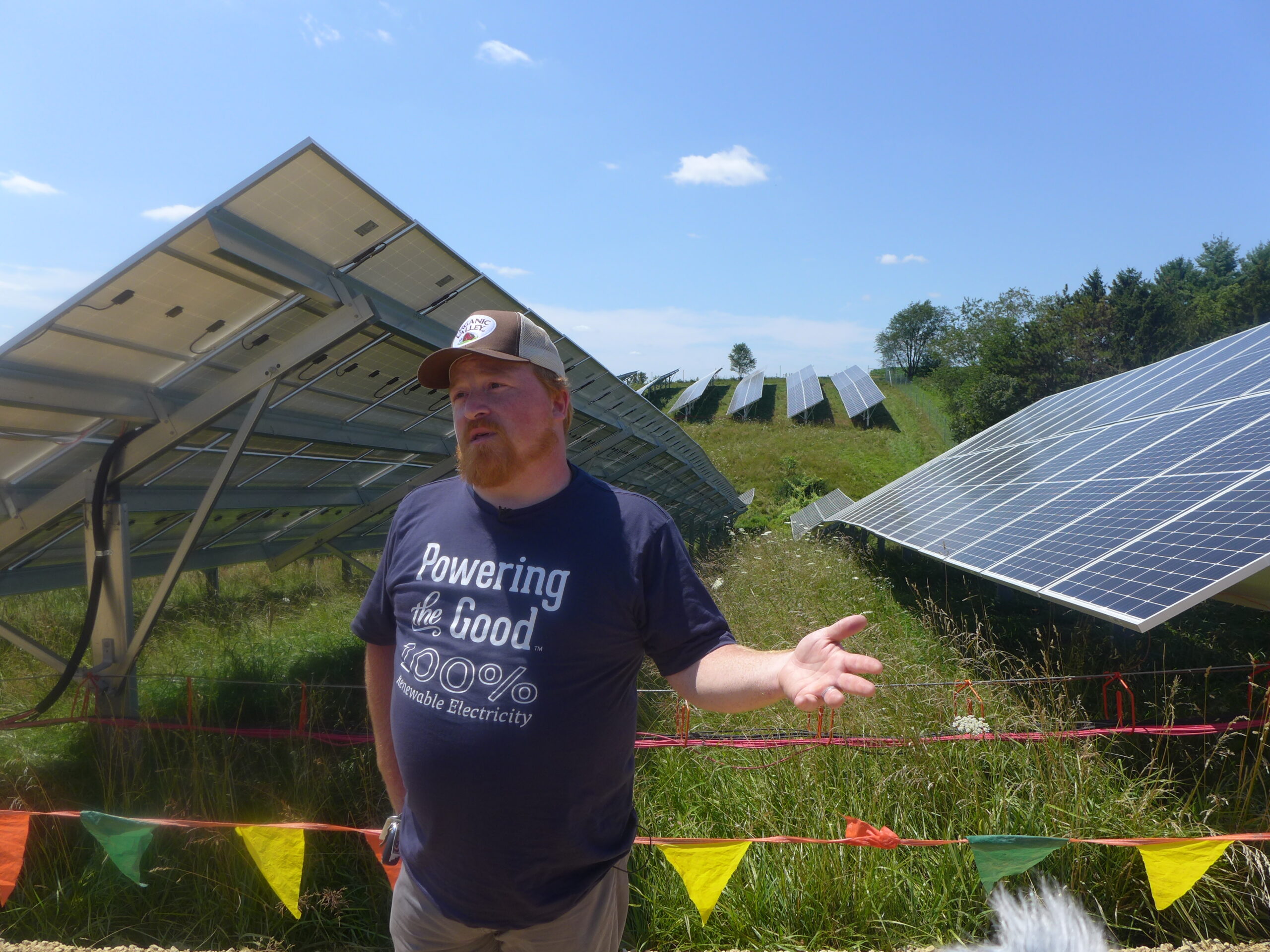
Stanley Minnick, energy services and technology manager at Organic Valley, said the commitment of local communities like Cashton, La Farge and Viola were essential to the new solar projects being built.
“Without all of those communities’ engagement, there’s no way we would have done this,” Minnick said. “We couldn’t have just done one of these projects. There were solar tariffs in place, there were other factors that we had to do 10 (sites) or we were doing none.”
Minnick said building fewer solar sites would have been more costly for all of the partners because of increased tariffs the U.S. placed on Chinese solar panels in 2018. But he said the investment is good for Organic Valley in many ways.
“It’s absolutely good for business that we’re helping ourselves and other community businesses save money on their electric costs. It’s good for business that our consumers see that we’re doing what they expect to see out of a leading organic company. And it’s good for business because it’s the right thing to do,” Minnick said.
One of the new solar projects is located in Cashton, near Organic Valley’s office. The site includes 6,800 solar panels located on organic pasture, which is grazed by a neighboring farm’s sheep herd.
Jamey Fitzgibbon, executive vice president of engineering and construction at BluEarth Renewables, said using the animals to manage the native grasses growing on the property is something new for his company.
“If the grass grows too high, it starts to shade the panels and interrupts the generation of energy, so we’re using sheep to graze the land underneath the panels to keep the grass low,” Fitzgibbon said. “It keeps our costs down in that we don’t have to pay someone to go with a weedwacker essentially underneath the panels.”
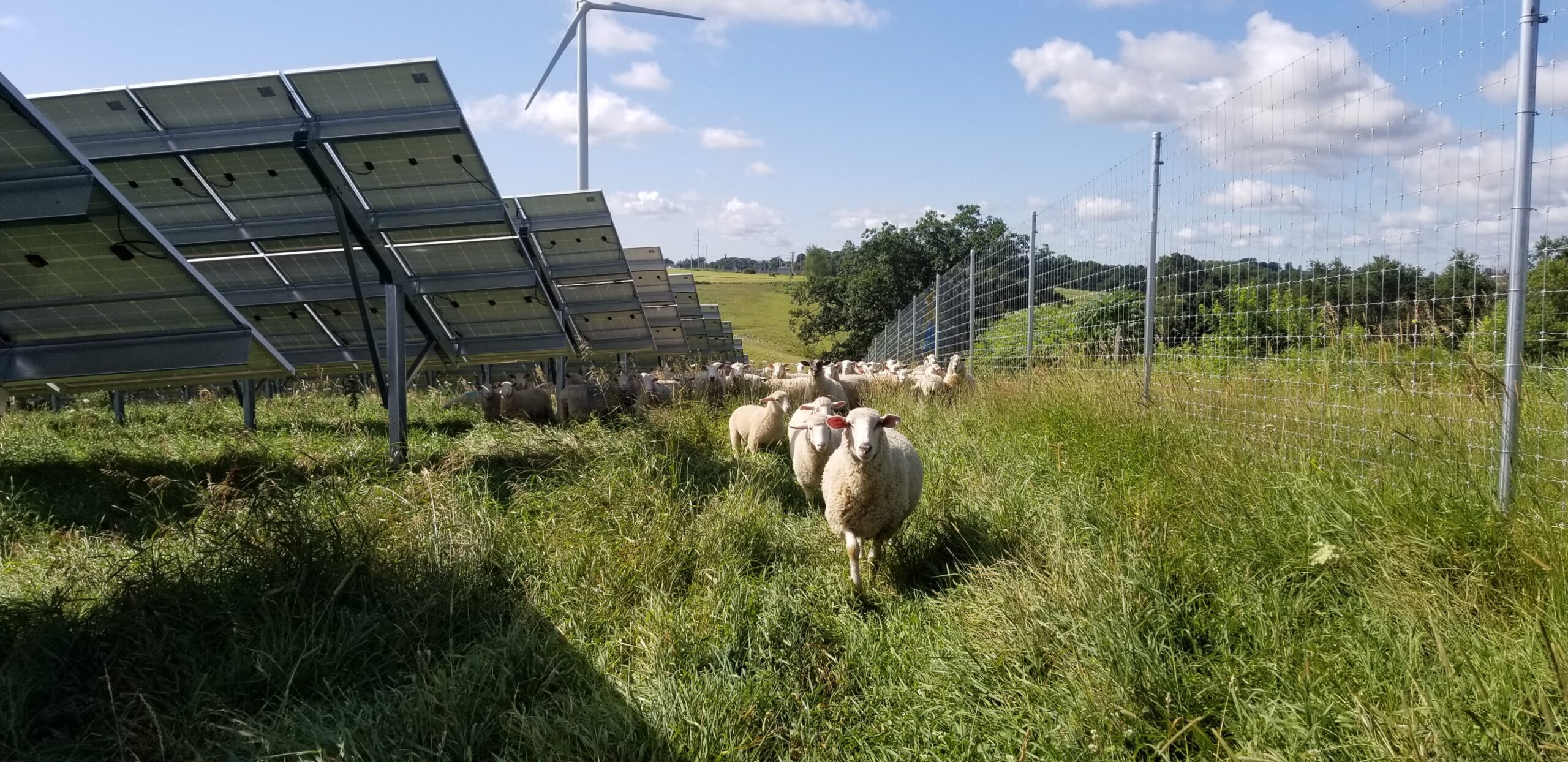
Organic Valley CEO Bob Kirchoff said he hopes the project can serve as an example for other companies thinking about investing in sustainability.
“Sometimes doing the right thing doesn’t give you quick profit or quick turnaround with where you want to be from the payback perspective. But there’s no question that this is resonating with more and more people,” Kirchoff said. “It’s not what we do, it’s how we do it and that’s where we have a platform and can set examples for other businesses and cooperatives.”
Now that the cooperative is completely powered by renewable energy, Kirchoff said Organic Valley’s next step is to help their 2,000 farmer members with sustainability projects.
Wisconsin Public Radio, © Copyright 2025, Board of Regents of the University of Wisconsin System and Wisconsin Educational Communications Board.

